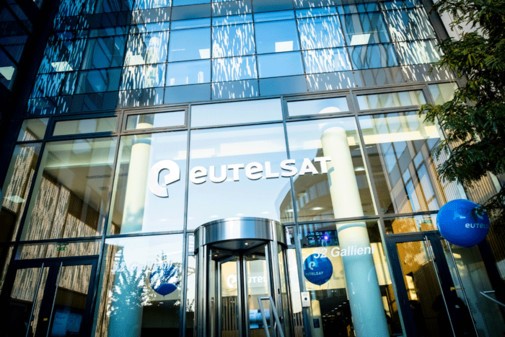Eutelsat hit by demands over Russia links
November 25, 2022
By Chris Forrester

Eutelsat has suffered multiple demands over its carriage of Russian channels, including its links with two major Russian pay-TV operators. Recently, 39 members of the European parliament called for Eutelsat to suspend its broadcasts to Russia. This has been followed by a letter from Ukraine’s broadcasting regulator demanding that Eutelsat take immediate action over its Russian broadcasts.
French newspaper Le Monde carried an article on November 24th from Ukrainian culture minister Oleksandr Tkachenko saying “Even the unprecedented sanctions imposed in 2022 have not put an end to its cooperation with the Russians. This powerful satellite operator continues to broadcast Russian propaganda channels.”
His Le Monde article reminds readers that RT, the former Russia Today, is now the world’s third most-watched global news channel (behind CNN and BBC) with more than 200 million potential viewers.
André Lange, a French academic and the former head of the influential European Audio-visual Observatory (until 2015), who has campaigned to stop Eutelsat’s broadcasts in Russia, asked: “Is it normal that a French company of which the French state is a leading shareholder and the regulator continue to broadcast the radio and TV channels of a terrorist state?”
French powerful rights group Reporters Without Borders has also filed a lawsuit in France to try to prevent satellite operator Eutelsat from continuing to broadcast three Russian channels. The press-freedom group filed a claim with France’s top administrative court asking it to reverse a decision by French media regulator Arcom that lets Eutelsat continue broadcasting Rossiya 1, Perviy Kanal and NTV.
“Arcom’s refusal to take up a major issue to fight propaganda and support journalism is very regrettable,” Christophe Deloire, the head of Reporters Without Borders (RSF), said in a statement. “RSF is asking the Conseil d’Etat to declare it illegal.”
The action states that the Russian channels are viewable in Ukraine, the Baltic countries and over the EU itself.
The Ukrainian letter, hand-delivered to Eutelsat’s CEO Eve Berneke, by Ukraine’s Embassy in Paris and on behalf of the Ukrainian National Council regulator, calls for Eutelsat to take down pay-TV operators Tricolor and NTV+ which it says includes channels which are propaganda mouthpieces for Russia.
The Ukrainian letter was delivered during Eutelsat’s formal meeting of its Assembly of Parties, the official supervising body over Eutelsat and looking after its intergovernmental obligations.
The letter talked about the dangers of Russian propaganda and its distortions of reality.
“By distorting reality for decades, they raised a whole generation of citizens imbued with ideas of hatred for European values and a belief in their own civilizational role in preserving and renewing the values of Soviet ideology,” said the letter.
“During the war launched by Russia against Ukraine, the propagandist Russian mass media resort to incitement to genocide against the Ukrainian people. Direct and public incitement to the commission of genocide, according to Article III of the Convention on the Prevention of the Crime of Genocide, is a separate crime, regardless of whether it is directly related to genocide or not. France, as a signatory country of this Convention, is obliged to take measures to prevent genocide and to punish its commission,” the letter added.
The letter detailed Ukraine’s claims, saying: “The official monitoring of the [Ukrainian] National Council recorded that the French operator Eutelsat S.A. hosts the Russian satellite television platforms ‘NTV+’ and ‘Tricolor’. Their program service includes Russian TV channels, which have been subject to sanctions by the European Union and certain countries, as well as orders from the French regulator Arcom to stop broadcasting. These are, in particular, the TV channels ‘Russia Today’, ‘Pervyi Kanal’, ‘Russia 1’, ‘TVC’ (TV Center International), ‘NTV’.”
“All these channels are directly or indirectly owned and controlled by the Russian government and receive advertising revenue from distribution in European countries. They systematically express support for the aggressive actions of the Russian government in Ukraine, promote war, enmity, incite the genocide of the Ukrainian people, and express threats against other European countries. Sanctions in the form of rebroadcast restrictions on them, the National Council is convinced, are a justified and necessary measure to stop the escalation of the war. Broadcasting of Russian channels should be limited,” argued the letter.
